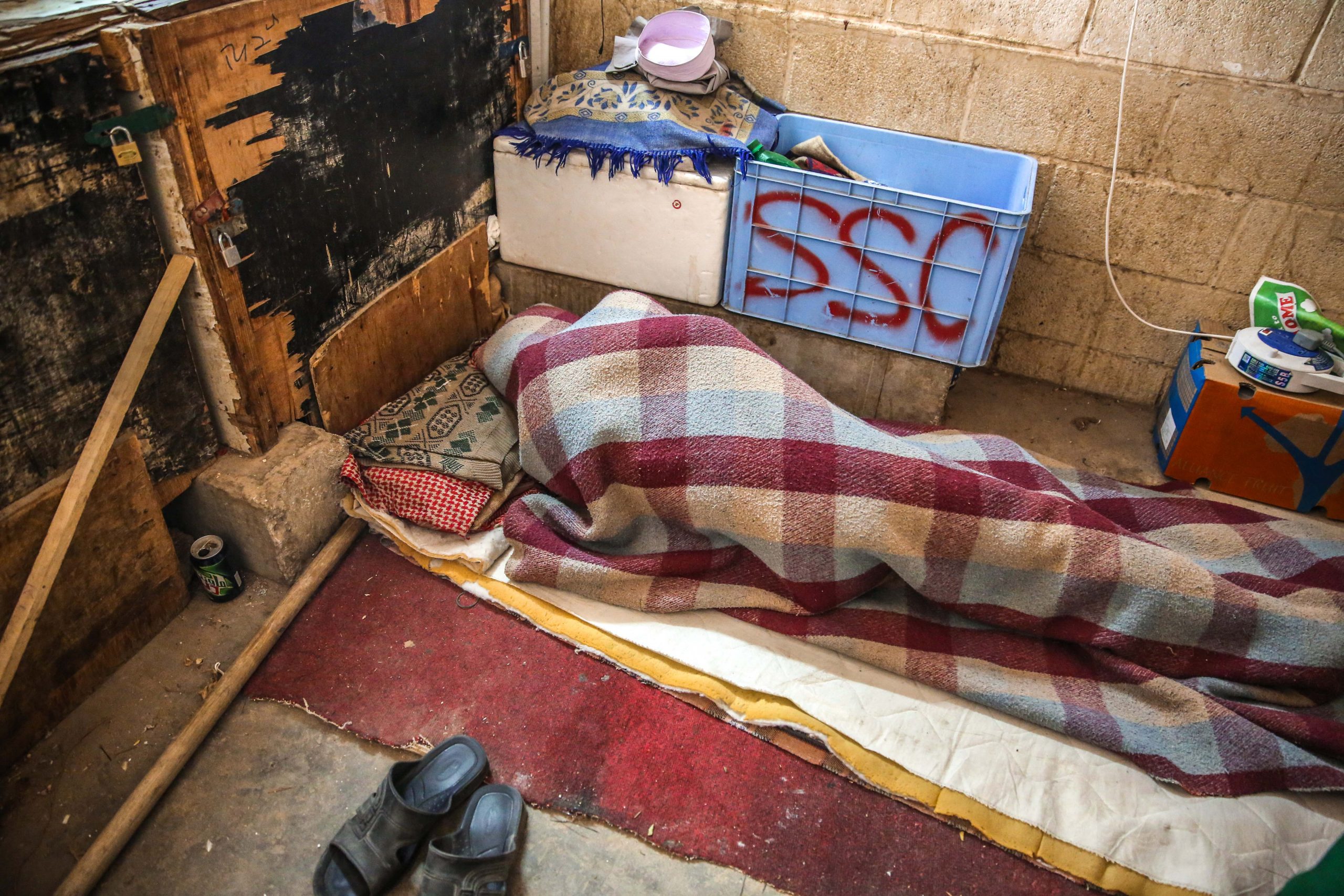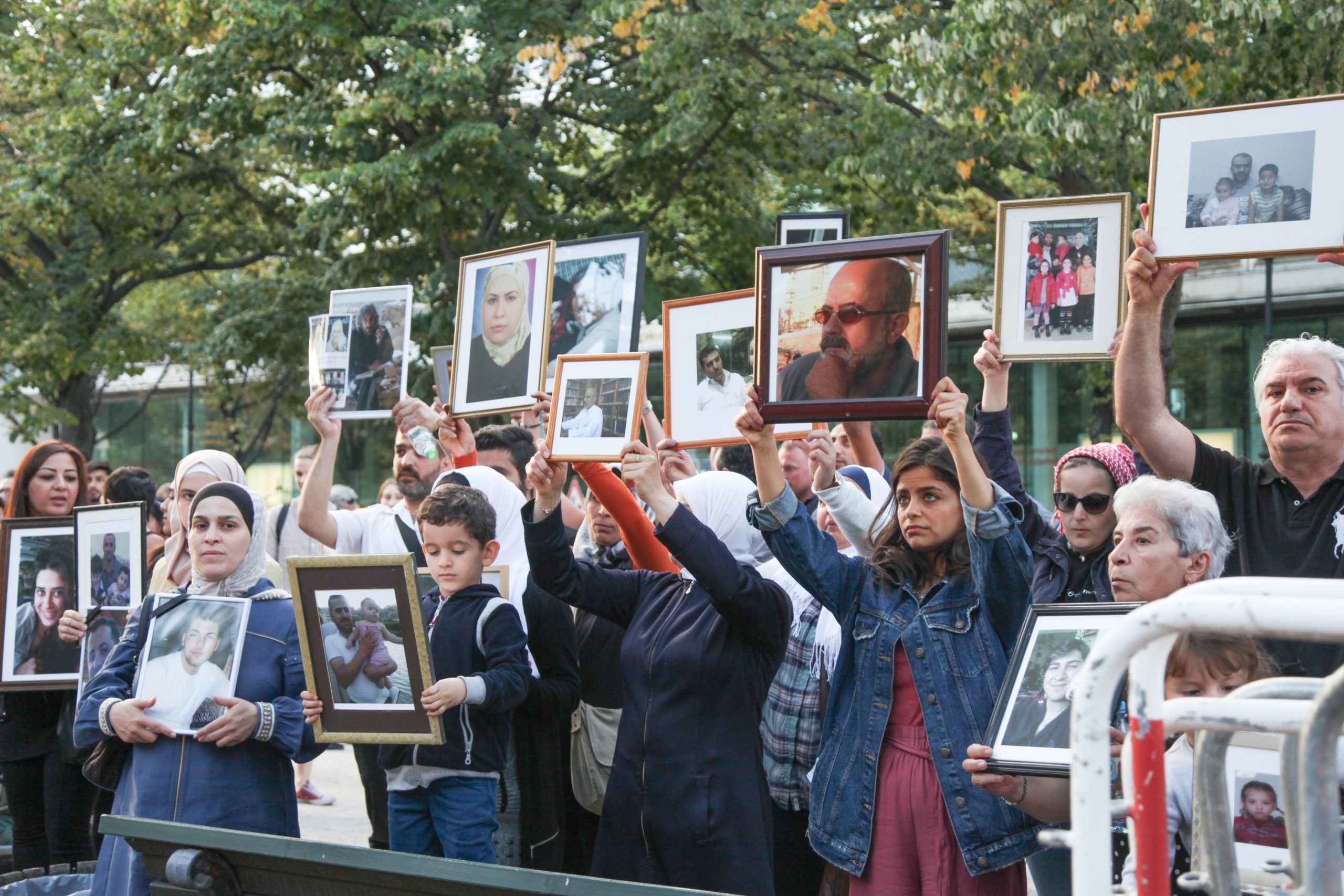
Though Qatar has changed dramatically in the past several decades, things have remained pretty much the same for some of its residents, including Abdullah.
The 73-year-old green-robed, white-haired hamaali hails from Iran and has lived here for the past 45 years. For two-thirds of that time, he has spent his nights sleeping in the same place he works, at the Central Market’s “Kilo” bazaar.
The plight of Abdullah and many other porters and vendors at the market, who come from Iran, India, Pakistan and Bangladesh, is no state secret.
But it made the headlines again last week, when Central Municipal Council members tackled the issue of homelessness in Qatar.

During a roundtable session, CMC members expressed surprise at the situation, after photos were circulated of fruit and vegetable stalls transformed into covered tents with blue tarp.
According to the Peninsula, members condemned the arrangement as a “violation of laws and safety rules.”
“(This is) something (un)civilised and not representative of Qatar’s development,” said Jassim Al Malki, the CMC’s deputy chairman, who has since recommended a crackdown on these makeshift homes and more rigid inspections.
But speaking to Doha News this week, many of the workers at the Central Market said they simply cannot afford proper accommodation. And their sponsors, who they pay QR1,400 once a year to continue working in the country, are of no help.
Looking the other way
Qatar’s police do not appear to be unaware of the hamaalis’ situation.
Hamaalis and vendors are provided with two forms of identification by the government – a Qatari ID, and a specific ID given by the Ministry of Municipality and Urban Planning (Baladiya).
When police conduct their monthly raids of the premises, those with the two IDs are left alone, even if they are sleeping. Those who lack either piece of ID are arrested and imprisoned before finally being deported.

Speaking to Doha News, several hamaalis said that the Central Market is also often a hideout for workers who, having spent thousands of riyals to secure a job in the Middle East, find themselves duped and living in squalor.
Unable to leave the country, they quit their jobs and sponsors and moonlight as porters during the day.
“We don’t mind that. They have to earn somehow,” Abdullah said. He added that most of these workers spend their nights at a nearby park, ready to temporarily relocate in case the police show up.
Typical day
Most vendors spend long hours working at the market, in shifts that often last more than 12 hours. The hamaalis who have made their home there wake up at the crack of dawn to pray at a nearby mosque before starting work.
During the day, Abdullah said he sits on a bench under a large tree at the market’s main entrance, waiting to help customers unload their purchases.
“Sometimes, a lot of people come. Mostly on Fridays. At other times, no one comes. We have no salaries. We make QR5 to 15 whenever we help a customer move (produce) from the market to his car, but that depends on how much they want to give us,” he added.

When night falls, the bench doubles as a makeshift bed for him and the seven other hamaalis that work at the Kilo Market. Sometimes, the men, whose ages range from 45 years old to over 80, sleep on their delivery trolleys, or on an enclosed concrete ledge at the market’s entrance.
“What can we do?” said Jahangir, 45, another hamaali who hails from the same region. “We make several hundred riyals a month and can’t afford rents in most places, so we make do here.”
Jahangir said his father usually takes the concrete ledge inside the market, a prime position given to him to shield him from the outside weather, and to help preserve his frail health.
But right now, he is in the hospital, suffering from what seems to be a mixture of cardiovascular and respiratory illnesses.
Other low-income expats also choose to spend their nights at the market.
One, an Indian worker who was asleep under a table in his stall, told Doha News that the choice was born of necessity.
“My room is very far, in Sanaya. Sometimes I stay here. At other times, I leave but come back again at 4am and then sleep here until 8.”
In another corner, an ex-hamaali, crippled by a falling door at the market several years ago, lay asleep on a thin dirt-stained rug on the floor, hidden by the covered produce of his stall.
By his head sat boxes holding a few clothes and caps. A small rotating fan provided the only ventilation, while overhead, a few delicacies – nutella, salt, garlic – lay hidden from public view.
Dangers
Without proper shelter, many workers at the market said they are vulnerable to theft, as well as the elements.
According to Jahangir, unknown assailants mugged his 80-year-old father about two months ago.
“They came at around 2am; one held his mouth closed. The other held his legs. They took QR200 from him. That was all the money he had made.
When we go to the police, they can’t do anything. He was old, he couldn’t scream, so no one saw the robbers. There’s no evidence. There’s no cameras here. There was nothing we could do,” he said.
Another problem faced by the porters is the theft of produce from the Central Market stalls. But they said that repercussions for missing food have been few and far between.

Unless action is taken, the hamaalis said they plan to continue scratching out a living here to send money home to support their families, who are largely unaware of their suffering.
“They have no idea what it’s like here. And even if they did, what could they do? We are weak here. They need the money, and we need to provide it,” said Jahangir, whose five children – four boys and one girl – are back home in Balochistan.
Thoughts?







